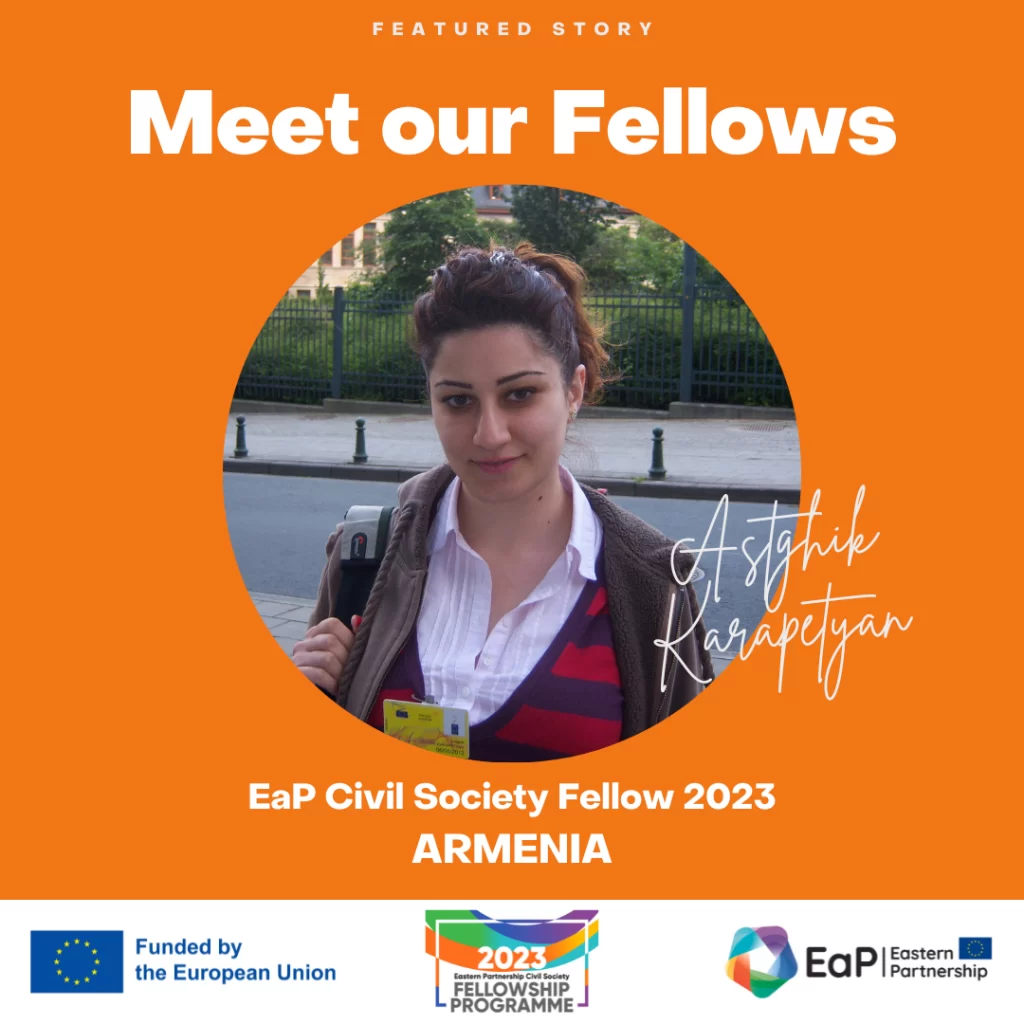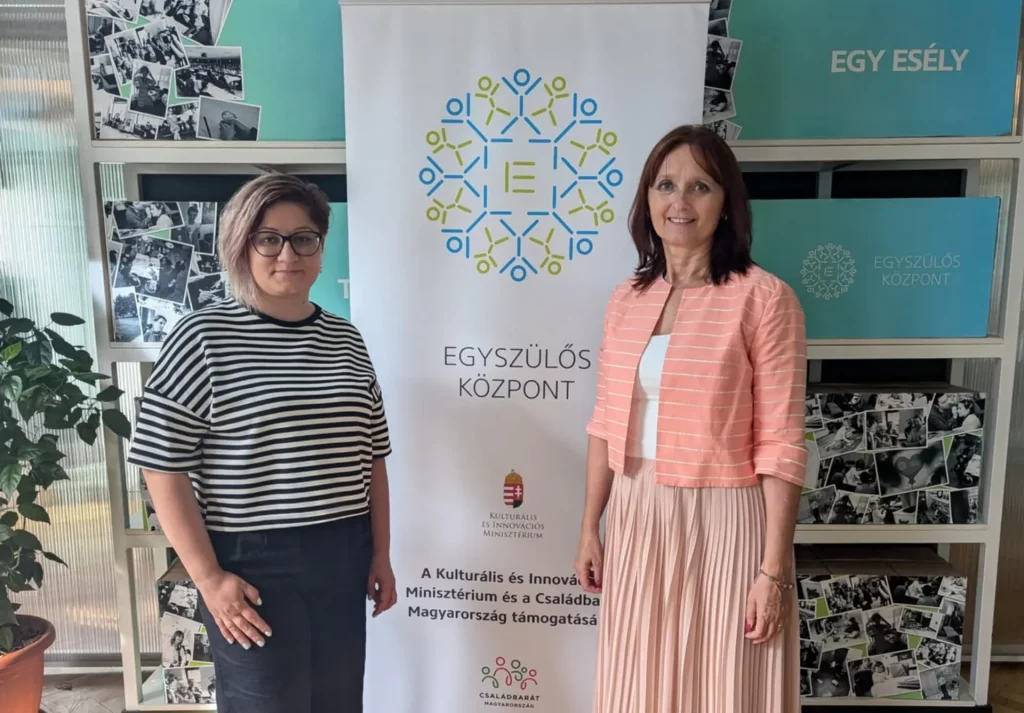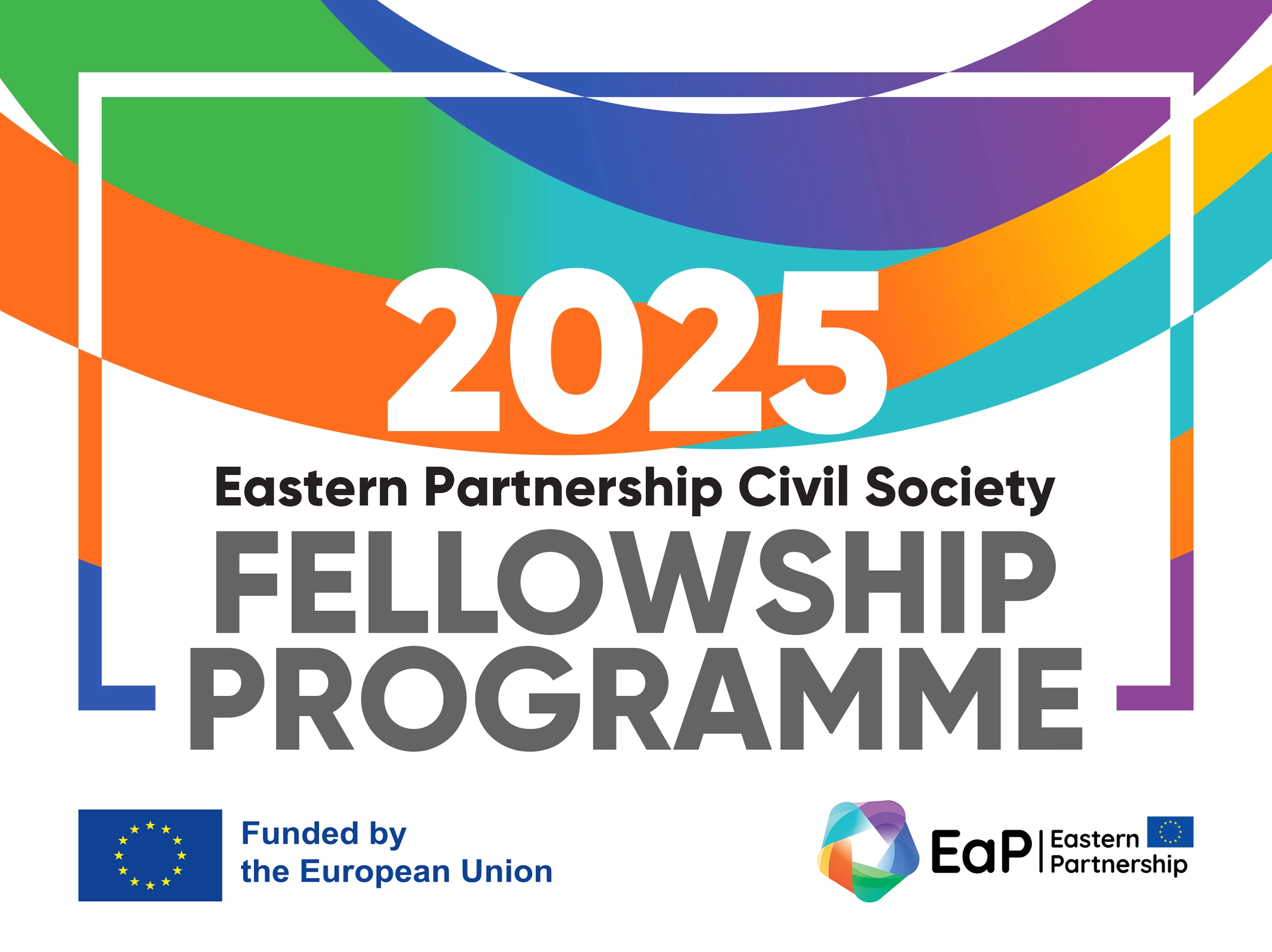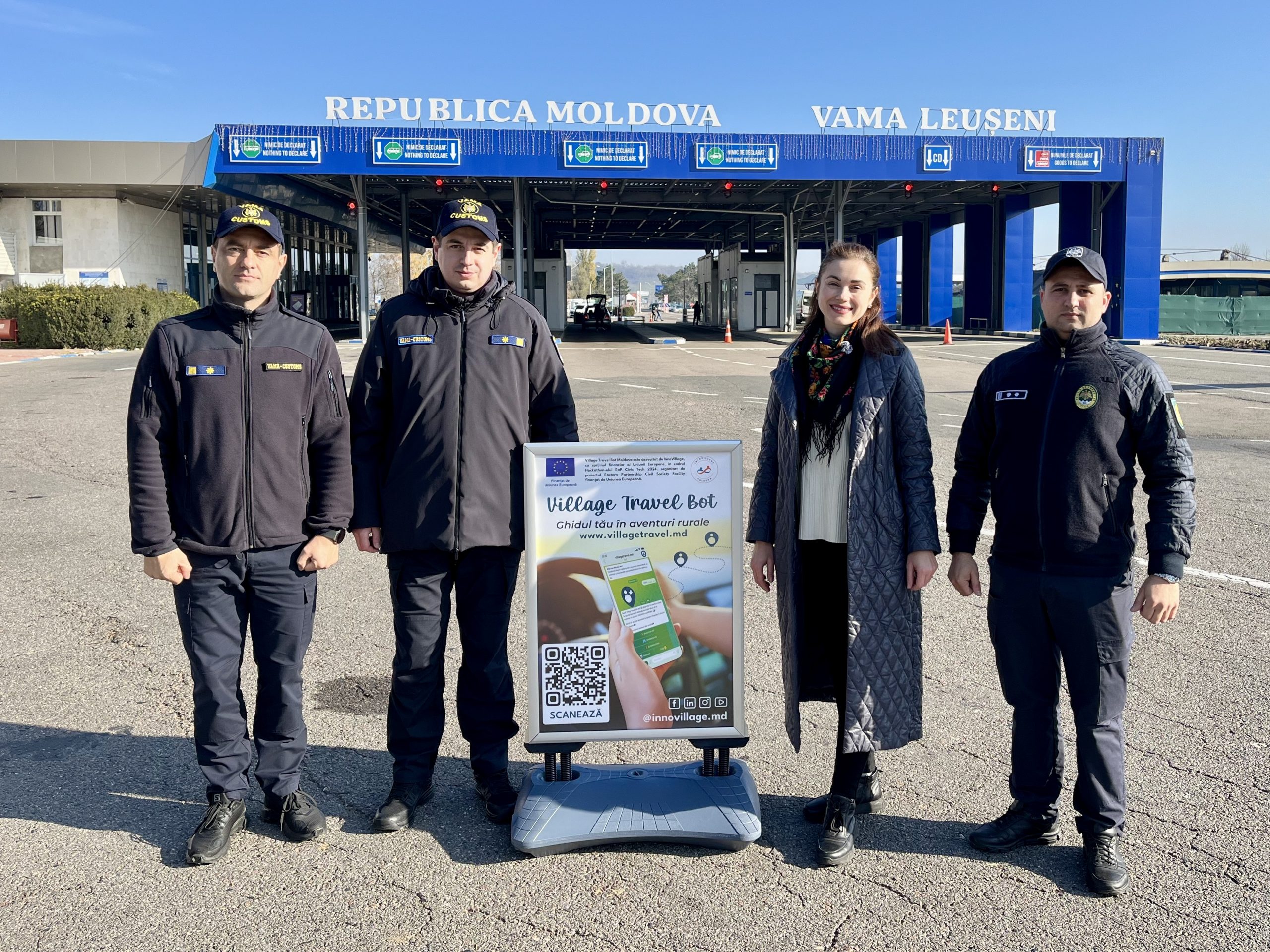‘I hope that one day, women in Armenia will not have to choose between family and work, proper childcare or sufficient income.’ This ‘hope’ has been the driving force for Astghik Karapetyan, an EaP Civil Society Fellow and co-founder and president of Point 33 NGO. Astghik sees that the workplace culture in Armenia, like in many places, faces challenges in supporting working parents, especially women. These gaps sparked her mission to foster Family-Friendly Workplaces (FFW). Her fellowship project, “Making Family-Friendly Workplaces Workable,” confronts the realities that many Armenian parents face: limited childcare support, rigid work hours, and a lack of policies that truly accommodate family life. “A family-friendly workplace allows employees to be close to and care for a family member in need while continuing to work and earn an income,” says Astghik․
Astghik is a human rights journalist. Since 2011, she has been reporting on topics covering human rights and the judiciary, including analytical and investigative pieces on state procurement and illegal enrichment.
Besides, Astghik is a mother of two. When her second child was born, she began to recall all the difficulties that she had gone through during the birth of her firstborn: labor rights violations, obstetric violence, depression, and other issues. However, she was a strong woman and was able to resist. But she kept thinking, how do other women who don’t know about their rights and don’t have enough strength to protect themselves settle all these problems? And this thought made her act and start advocating for women’s rights and family-friendly policies.
Astghik’s journey as an EaP Civil Society Fellow began with qualitative research on the Armenian legislative landscape and opportunities to have FFWs, and FFW models in Europe, including Czech and Hungarian examples where progressive policies have made balancing work and family more achievable. There, she observed pioneering approaches to workplace flexibility, affordable childcare, and parental support that have made balancing family and work more feasible. The research, Family-Friendly Workplaces: Armenian Opportunities (download report in Armenian language), includes legal and practice reform recommendations for the Government and parliament, as well as employers of Armenia.
Beyond research and policy recommendations, Astghik has engaged the public directly through her podcast series, Մեծ գործ (Metz Gorts, or “Big Thing”). The podcast addresses practical aspects of family life for Armenian working parents, covering crucial topics like mental health for working mothers, childcare accessibility, and perspectives on balancing work and family in Armenia. In less than a year, the podcast has gained thousands of listeners, amplifying discussions around family-inclusive workplace cultures in Armenia. The episode about the mental health of working parents is the most popular with our audience. One listener wrote that in her most exhausted moments, she remembers and follows the idea in the episode that you must give yourself time to be with yourself and “recharge” during the day.
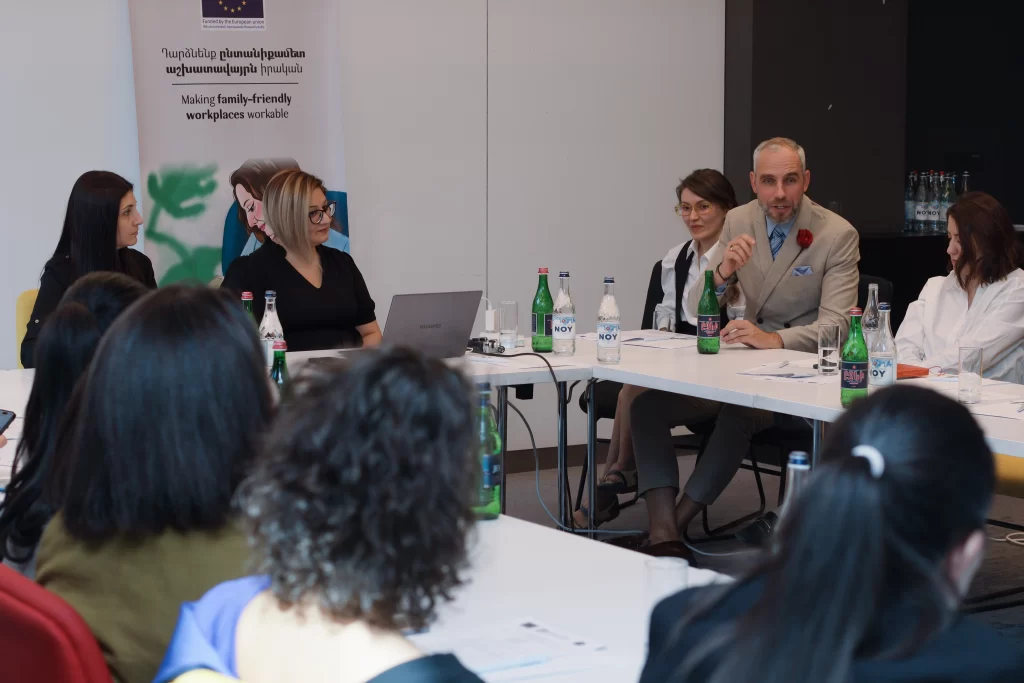
Astghik’s advocacy reached a significant milestone at the final project’s event attended by Armenian government and parliament representatives and the Extraordinary and Plenipotentiary Ambassador of the Czech Republic to Armenia, Petr Pirunčík. Ambassador Pirunčík expressed his gratitude for the project’s accomplishments, including the insights gained from visits to the Czech Republic and Hungary to study their family-friendly workplace models. He highlighted the complex challenges that remain, noting, “Many issues can be resolved through legislative changes, but often the solution depends on the goodwill of the employer. It is difficult when people believe that having a child means you shouldn’t return to work. The hardest part is addressing societal mindsets and customs.”
During the event, the representatives of Armenia’s parliament and government expressed strong interest in Astghik’s recommendations and commended her work as “ready material for legislative change,” indicating its practical value. For Astghik, this recognition represents a hopeful step toward an Armenian workplace culture that genuinely supports family life, encouraging both career and personal wellbeing.
"Through my project, I want to talk about the difficulties of women who combine family, childcare, and jobs and the means to solve these difficulties. We have the opportunity to achieve this. Specific legislative changes are, of course, essential and will have significant changes. However, the most important thing is for employers to take the first step to make the workplace family-friendly,”
Astghik envisions an Armenia where workplaces truly support family needs, empowering a stronger and more balanced workforce. Her work brings Armenia closer to a culture where parents can thrive both at work and at home, creating not only supportive environments but also a more resilient society.
Find other Featured Stories of our EaP Civil Society Fellows here.
Background information:
Astghik Karapetyan is one of the Fellows of the Eastern Partnership Civil Society Fellowship programme funded by the European Union. Its main objective is to support civil society activists or civically minded people from Armenia, Azerbaijan, Belarus, Georgia, Moldova and Ukraine who demonstrate a deep commitment to leading positive social change in their communities. The Eastern Partnership Civil Society Fellowship programme has been running since 2017 and today the Fellowship alumni has 200 Fellows from across the six countries of the Eastern Partnership. Details about the Fellows and their Fellowship projects can be found here.



